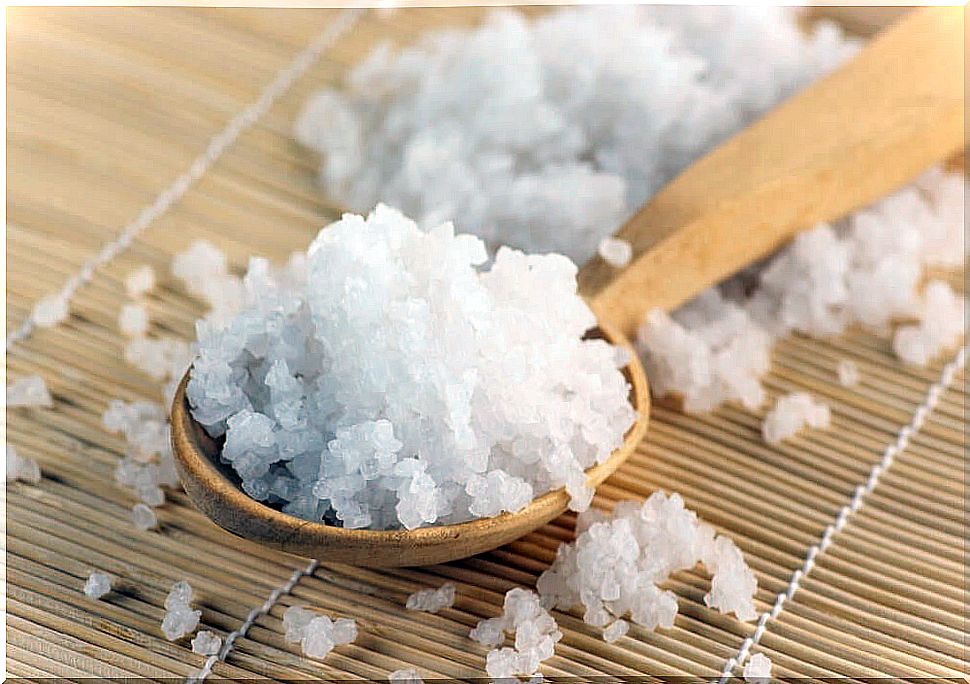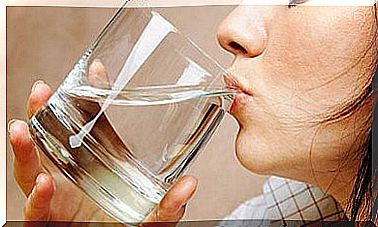Mineral Salts: What They Are And Where To Find Them
Probably, on more than one occasion, we have heard about the importance of mineral salts for the body. They constitute about 4% of our body mass and, together with other nutrients, are decisive for carrying out vital functions. What exactly are they? Where to find them?
What are mineral salts?
According to the data published in “Biosphere Project: Biology and Geology Resources”, mineral salts are called inorganic molecules that, in living organisms, appear precipitated, ionized or associated with any molecule.
- Those that appear precipitous form hard structures that provide protection to those who possess them. They also fulfill regulatory functions.
- In the case of ionized mineral salts, when dissolved in water, they show positive or negative charges. This helps, for example, in buffering changes in pH.
- Finally, the salts that associate with a molecule do so to perform some function that, separately, they could not.
What is the importance of mineral salts?

Sodium helps keep fluids balanced in the body, inside and outside the cells, as explained in a post in Advances in Nutrition . In addition, it helps the transmission and generation of nerve impulses and the correct response to muscular stimuli.
It is involved in the acid-base balance. Its deficiency can induce fatigue and its excess is related to an increased risk of high blood pressure. This is due to its ability to regulate blood pressure and blood volume.
Calcium
This mineral salt performs various functions in the human body.D According to information in the journal Nutrients , it is part of the bones and teeth, and keeps them healthy. Likewise, its presence is of great importance for blood clotting.
- By not ingesting enough of this mineral salt, we can present brittle hair and nails, as well as memory loss and even run the risk of suffering from osteoporosis.
Iron

A review through the Journal of Research in Medical Sciences , notes that iron enables the formation of hemoglobin. This is a protein that red blood cells contain and that allows the transport of oxygen to the tissues. It constitutes 65% of the iron in the body.
Iron is also necessary to form myoglobin, which is the protein responsible for transporting oxygen to the muscles. It is similar to hemoglobin and its function is to store oxygen. It is found mainly in skeletal muscle and heart muscle, which require the most energy.
Magnesium
Magnesium participates in nerve transmission and muscle relaxation, maintaining acid-base balance. Through the Clinical Kidney Journal it is reported that some of the consequences of the deficiency of this mineral salt in the body include:
- Irregularity in the heart rhythm.
- General fatigue.
- Muscle cramps.
- Anxiety.
Potassium

Potassium is an elemental mineral salt for the body, due to the functions it performs. For example, as highlighted in Advances in Nutrition , it regulates water inside and outside the cells, in conjunction with sodium, essential for the proper growth of the human body.
The consequences of potassium deficiency include:
- Dry Skin.
- Continual feeling of thirst.
- General weakness
Match
Another Advances in Nutrition publication explains that phosphorus is one of the main responsible for the formation of bones and teeth. Thus, it plays a vital role, as it determines the way in which the body uses carbohydrates and fats.
Lack of phosphorus can lead to:
- Insomnia.
- Fatigue.
- Nervousness.
What foods are rich in mineral salts?
The best way to obtain mineral salts is through food. Although they are available in supplements, these should be reserved only for cases where they are really necessary.
Calcium
Calcium is found, essentially, in dairy products like yogurts, cheeses, and milk.
Potassium
Potassium is present in fruits. Since potassium is useful for muscle activity, banana is a great help for cramps. You also find it in legumes, meats, fish and even in chocolate.
Iron
Iron can be absorbed from offal, shellfish, cocoa, legumes, egg yolks, or cereals in general.
Magnesium
You will also find magnesium in some of the products already mentioned: it is present in the germ of cereal, nuts, legumes, chocolate and whole wheat bread.
Match
You can get phosphorus from any lipid , such as meat or fish.
Mineral salts are necessary for the proper functioning of the human body. Like vitamins, they must be ingested daily.
Your contribution varies depending on the person who takes them. Analyze your daily diet and if the products we recommend here are not present in it, add them and enjoy what they will bring with them.









